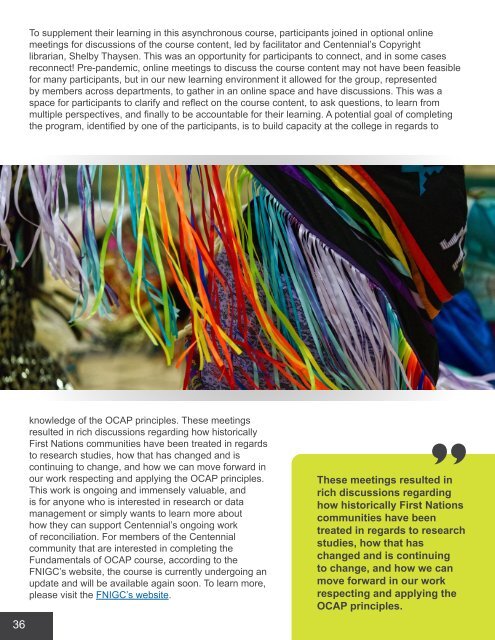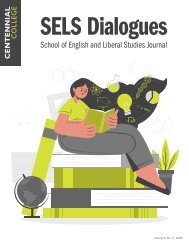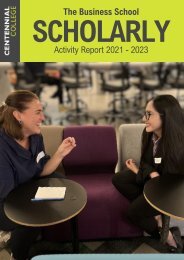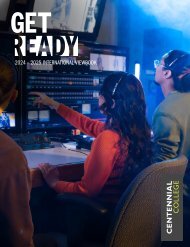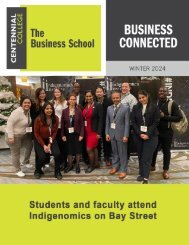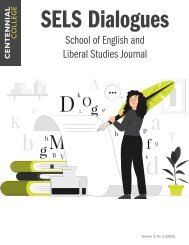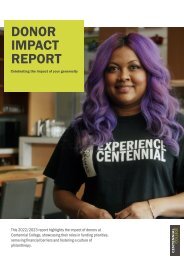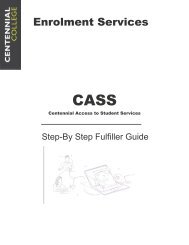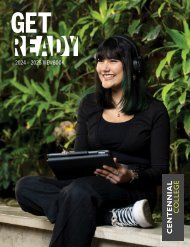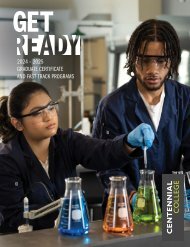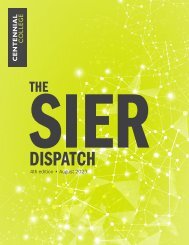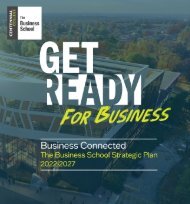The Teaching and Learning Innovation Digest - May 2023
Welcome to a truly special edition of the Teaching and Learning Innovation Digest! Our seventh annual academic publication has assumed an incredibly meaningful shape and form for a number of reasons. Not only did we receive an enthusiastic response with over 30 submissions via our institutional broadcast, but we also have consciously and intentionally embraced the principles of Universal Design for Learning by attempting to represent and celebrate the varied forms of expressions therein. From reflective essays, poetry, visual and performing arts, podcasts, video conversations to scholarly work, academic and applied research, news and updates, and interviews, this is truly a power-packed publication!
Welcome to a truly special edition of the Teaching and Learning Innovation Digest! Our seventh annual academic publication has assumed an incredibly meaningful shape and form for a number of reasons. Not only did we receive an enthusiastic response with over 30 submissions via our institutional broadcast, but we also have consciously and intentionally embraced the principles of Universal Design for Learning by attempting to represent and celebrate the varied forms of expressions therein. From reflective essays, poetry, visual and performing arts, podcasts, video conversations to scholarly work, academic and applied research, news and updates, and interviews, this is truly a power-packed publication!
You also want an ePaper? Increase the reach of your titles
YUMPU automatically turns print PDFs into web optimized ePapers that Google loves.
To supplement their learning in this asynchronous course, participants joined in optional online<br />
meetings for discussions of the course content, led by facilitator <strong>and</strong> Centennial’s Copyright<br />
librarian, Shelby Thaysen. This was an opportunity for participants to connect, <strong>and</strong> in some cases<br />
reconnect! Pre-p<strong>and</strong>emic, online meetings to discuss the course content may not have been feasible<br />
for many participants, but in our new learning environment it allowed for the group, represented<br />
by members across departments, to gather in an online space <strong>and</strong> have discussions. This was a<br />
space for participants to clarify <strong>and</strong> reflect on the course content, to ask questions, to learn from<br />
multiple perspectives, <strong>and</strong> finally to be accountable for their learning. A potential goal of completing<br />
the program, identified by one of the participants, is to build capacity at the college in regards to<br />
References<br />
Algonquin College <strong>and</strong> First Nations Information Governance Centre. (n.d.-a).<br />
Module 1: What is OCAP? Participant notes. http://corporatetraining.algonquincollege.com<br />
Algonquin College <strong>and</strong> First Nations Information Governance Centre. (n.d.-b). Welcome to<br />
Fundamentals of OCAP, FNIGC’s first online training program.<br />
http://corporatetraining.algonquincollege.com<br />
36<br />
knowledge of the OCAP principles. <strong>The</strong>se meetings<br />
resulted in rich discussions regarding how historically<br />
First Nations communities have been treated in regards<br />
to research studies, how that has changed <strong>and</strong> is<br />
continuing to change, <strong>and</strong> how we can move forward in<br />
our work respecting <strong>and</strong> applying the OCAP principles.<br />
This work is ongoing <strong>and</strong> immensely valuable, <strong>and</strong><br />
is for anyone who is interested in research or data<br />
management or simply wants to learn more about<br />
how they can support Centennial’s ongoing work<br />
of reconciliation. For members of the Centennial<br />
community that are interested in completing the<br />
Fundamentals of OCAP course, according to the<br />
FNIGC’s website, the course is currently undergoing an<br />
update <strong>and</strong> will be available again soon. To learn more,<br />
please visit the FNIGC’s website.<br />
<strong>The</strong>se meetings resulted in<br />
rich discussions regarding<br />
how historically First Nations<br />
communities have been<br />
treated in regards to research<br />
studies, how that has<br />
changed <strong>and</strong> is continuing<br />
to change, <strong>and</strong> how we can<br />
move forward in our work<br />
respecting <strong>and</strong> applying the<br />
OCAP principles.<br />
37


